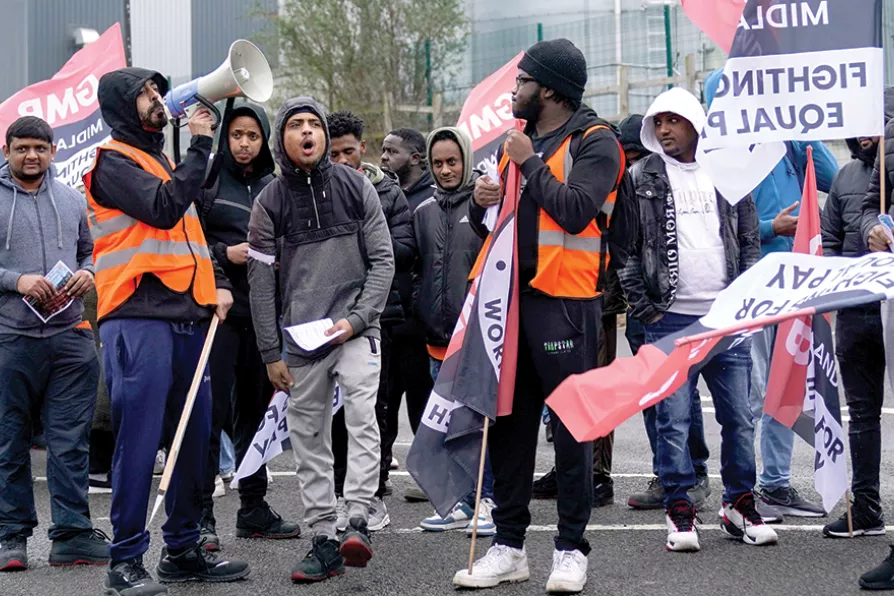LUKE FLETCHER outlines Plaid Cymru bold plans for wide-ranging policy consultations with trade unions in Wales

 JUST PAY NOW: (Below) Amazon staff members on a GMB picket line outside the online retailer’s site in Coventry, during a strike over pay, March 2024
JUST PAY NOW: (Below) Amazon staff members on a GMB picket line outside the online retailer’s site in Coventry, during a strike over pay, March 2024
I RECENTLY received a very large box from Amazon. When I tore it open it was just a small set of paintbrushes which I had forgotten I had ordered. The rest was just packing paper.
The letdown and feeling of being slightly mocked, if not conned, reminded me of how union builders felt in 1999, when we finally got to open up the big shiny gift box containing the New Labour Employment Bill, only to find quite small changes largely unenforceable
Since the election in July we have been bombarded with repeat announcements that government still intends to end the Minimum Service Levels Act, improve access to workplaces for unions, end fire and rehire, grant a right to disconnect and so on as set out in the New Deal for Working People.

Labour must not allow unelected members of the upper house to erode a single provision of the Employment Rights Bill, argues ANDY MCDONALD MP

The Bill addresses some exploitation but leaves trade unions heavily regulated, most workers without collective bargaining coverage, and fails to tackle the balance of power that enables constant mutation of bad practice, write KEITH EWING and LORD JOHN HENDY KC












